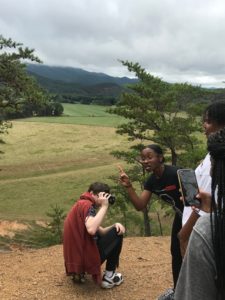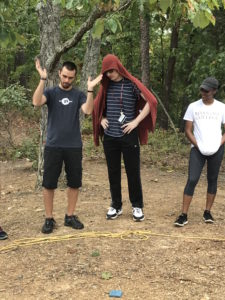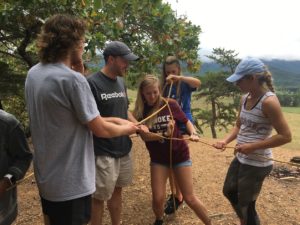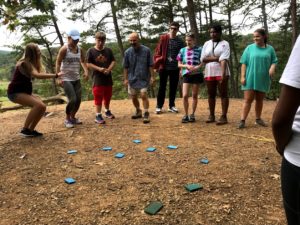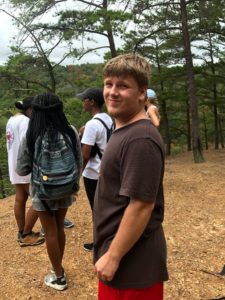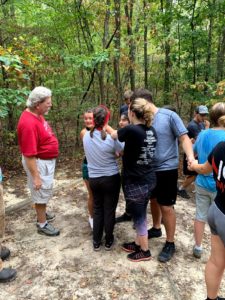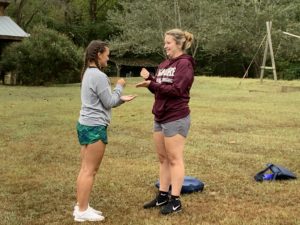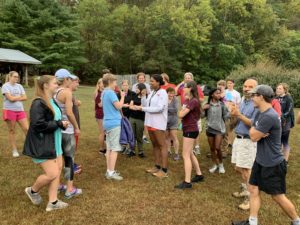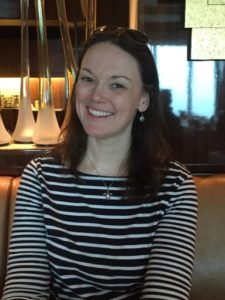Posted by allen under Roanoke College students in healthcare
Comments Off on A conversation with medical student Rebecca Hudon
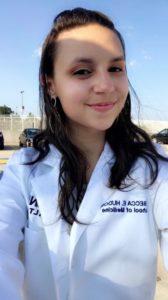
We talked to Rebecca on August 21 at Mill Mountain Coffee. Rebecca was visiting before returning to the University of Connecticut for her second year of medical school. Rebecca graduated in 2017 summa cum laude as a valedictorian with a degree in biology and minors in chemistry and music and a concentration in neuroscience.
Rebecca has been interested in medicine for a long time but came to it as a culmination of multiple other interests: engineering, biology, wanting genuine human interaction…all adding up to a keen interest in surgery, maybe general or maybe a specialty. She found that the range of classes she’d taken at Roanoke helped her stand out and impress upon interviews that she is a well-rounded person. The music minor particularly so: she was asked to beat-box in her interview at U-Conn!
We talked about the fact that she had pushed her medical school application too late for the expected application cycle (she was a candidate for a Rhode’s scholarship her junior year when one would have completed the application process), and thus she took a gap year before starting medical school. She was not happy about it at the time but now says that it was one of the best things she could have done: She did interesting research on Alzheimer’s disease, took a much-needed break, thought carefully about what kind of program she wanted, and worked on applications during that period AND saved up some $$. Thinking about the program led her to one of the things Rebecca was most enthusiastic about regarding U Conn: it has a pass-fail system for medical school. Rebecca feels strongly that the pass fail approach made for a much more cooperative and mutually helpful cohort group of students, which she found invaluable. And it helped prime the students for teamwork, which is essential in medicine.
That first year: It was very challenging, and a lot of material she’d never encountered before with a steep learning curve. But the flip side is that it’s really interesting to learn all that new material and very rewarding to have mastered it. When asked about advice for prospective medical school students, Rebecca talked about the need to know what a person’s most effective way of working and studying, because you’re going to need to maximize effectiveness. And it’s important to set high but reasonable expectations because -there’s that firehose/waterfall analogy – there is just no way you’ll get every bit of the information the first time around. Similar to some of the others we spoke with, Rebecca emphasized applying early, especially the secondary applications, and to have some idea of what appealed to her about specific programs so that she could mention them. And remember that there are other areas in medicine other than being a physician; if you want to care for people, there are lots of ways to do that. Rebecca was confident in her decision to be a physician but she also learned a lot about other professions that are part of a medical team: professions that might be better fits for some people.
Thanks and best wishes for the soon-to-be Dr. Hudon!
